03 April 2019
On the 13th of May 2019, the first CCAMEU Network Workshop was held in Munich on the topic of: ‘Challenges of EU Automated mobility Systems: Integrating Theoretical Perspectives’ Workshop. The Workshop addressed the grand theoretical challenges of conceptualizing automated mobilities in modern societies. Social theory as well as the perspectives of practitioners were the focus of the workshop presentations and discussions.
The first part of the workshop opened up perspectives from science and technology studies, individualization theory, the new mobilities paradigm and action theories (new individualisms, reinvention, experimentation). The speakers addressed the theoretical challenges of systems of automated mobility inaugurated through artificial intelligence, advanced robotics, accelerating automation, big data, machine learning, and the Internet of Things.
Keynote presentations were delivered by Network Directors Anthony Elliott, Malene Freudendal-Pedersen and Sven Kesselring. Later in the day, the focus shifted from theory to practice, putting both perspectives into balance and identifying the urging questions for societies, business, ecology and civil society. Presentations were delivered on the latest developments in automated mobility from industry leaders, scientists and practitioners.
Workshop Partners
The ‘Challenges of EU Automated Mobility Systems: Integrating Theoretical Perspectives Workshop’ was hosted by the University of Nürtingen-Geislingen (HfWU), Germany. The workshop was part of the launch suite of activities for the Cooperative, Connected and Automated Mobilities Jean Monnet Network (CCAMEU), which is co-funded by a European Union ERASMUS+ Grant and the University of South Australia. Other Network Partners include Aalborg University, Denmark; University of Canterbury, New Zealand; Tartu University, Estonia and Keio University, Japan.
Program
MONDAY 13 MAY 2019
9.00 – 9.30 - REGISTRATION
Green City AG, Zirkus-Krone-Straße 10, Orange Bar, 5th floor
9.30 – 10.00 - SESSION 1: CCAMEU UPDATES AND PROGRESS – REPORT BY EXECUTIVE COMMITTEE
Prof. Anthony Elliott – Welcome and summary of the CCAMEU Network
Prof. Sven Kesselring – Introduction to the workshop
10.00 – 10.45 - SESSION 2: SOCIAL-THEORETICAL ASPECTS OF THE CCAMEU NETWORK
Prof. Anthony Elliott, Adelaide (Australia): “No-One Driving: Dwelling in the Age of Automated Mobilities”
10.45 – 11.00 - COFFEE-TEA-BREAK
11.00 – 12.15 - SESSION 2 CONTINUED
Prof. Malene Freudendal-Pedersen, Aalborg (Denmark): “Implications of Automated and Connected Mobility Systems for Smart Cities and Urban Planning”
Prof. Sven Kesselring, Geislingen (Germany): “Cultural and Structural Changes in the System of Automobility”
12.15 – 13.00 - LUNCH
Practitioners and Business representatives are welcome to join
13.00 – 14.00 - SESSION 3: KEYNOTE PRESENTATION
Anders Eugensson, Former Director of Governmental Affairs, Volvo: “Mobility of Tomorrow and Autonomous Vehicles”
14.00 – 14.30 - SHORT BREAK
14.30 – 16.00 - SESSION 4: PRESENTATIONS BY PRACTITIONERS AND CIVIL SOCIETY REPRESENTATIVES
Input 1: Adela Spulber, City Relations/Business Development Manager (Autonomous Services), Daimler:"The Daimler Vision for Autonomous Mobility Services"
Input 2: (TBC)
Input 3: Prof. Malte Ackermann, Institute for Automotive Industry, formerly moovel, NGU: “Implications of Automated Mobility systems for MaaS”
Input 4. Armin Gräter, Technical Product Manager Regulation Automated Driving, BMW Group: "Automated Driving, the Future of Urban Mobility and CO2 emissions"
Discussion
16.00 – 16.15 - AFTERNOON BREAK
16.15 – 16.45 - PANEL DISCUSSION: Mobilities Futures. Challenges, Risks and Chances.
Moderator: Prof. Sven Kesselring; Participants: Anders Eugensson, Malte Ackerman, Adela Spulber, Armin Gräter - Workshop summary & outlook.
16.45 – 17.00 - BOOK PRESENTATION
Prof. Elliott, UniSA, Australia: The Culture of AI: Everyday Life and the digital Revolution
19.00 - 21.00 - WORKSHOP DINNER
Nymphenburger Hof Restaurant, Nymphenburger Str. 24
Keynote Speakers
No-One Driving: Dwelling in the Age of Automated Mobilities
Professor Anthony Elliott
University of South Australia, Australia
Abstract
The British artist John Foxx raised the spectre of “no-one driving” in his Ballard-inspired, 1980 classic Metamatic. This presentation elaborates on the conjecture that automated mobilities are one of the defining characteristics of the digital revolution, with radical consequences for both sociotechnical systems and lifestyle change. The argument I develop is that the advent of AI, accelerating automation and automated mobilities makes new conceptual and methodological demands on mobilities research. Introducing the emergent contours of what I have termed “mobilities 3.0”, I outline several key aspects of complex automated systems, with particular reference to the transformative impacts of AI, advanced robotics and accelerating automation. Finally, I analyse what it is that people might do when there is “no-one driving”, raising the crucial issue of our dwellingness within automated systems.

Professor Anthony Elliott - Executive Director: Hawke EU Centre Jean Monnet Centre of Excellence Internationally acclaimed for his research on identity studies, he has developed an original account of how globalisation and the mobility revolution are transforming the contemporary world. His research concerns key academic and policy debates about the global digital economy; identity politics; the social impacts of digital technologies, robotics and artificial intelligence; the mobilisation of societies, and the consequences of social acceleration across the EU. As the author and editor of some 40 books – which have been translated into over a dozen languages – Professor Elliott is pre-eminently qualified to lead the Hawke EU Centre in the investigation of the escalating mobility of people – both freely chosen and enforced movement – from all around the world.Professor Anthony Elliott was appointed Executive Director of the Hawke EU Centre in 2015. He is also Dean of External Engagement and Research Professor of Sociology at the University of South Australia. Professor Elliott holds a PhD in Sociology from Cambridge University and a BA (Hons) from the University of Melbourne. Professor Elliott is currently Global Professor (Visiting) of Sociology at Keio University, Japan and Visiting Professor of Sociology at University College Dublin, Ireland. He is a Fellow of the Academy of the Social Sciences in Australia, a Fellow of the Cambridge Commonwealth Trust, and a member of King’s College, Cambridge. His research has focused on European social theory, and, in recent years, the transformed relationship between globalisation and identity.
Cultural and structural changes in the system of automobility
Professor Sven Kesselring
Nürtingen-Geislingen University, Germany
Abstract
Cities and regions are comprised of social, cultural, geographic, technological, and digital mobilities. The networks and flows connected to these mobilities build the basis for new socio-cultural practices in everyday life, leisure and business. ‘Miniaturized mobilities’ (Elliott 2013) have transformed the pulse, the pace and the reach of and within cities. Public perceptions of mobility have changed character: the male, purposeful, time-saving and professional traveler is no longer the uncontested ‘leitbild’. Instead, the modern mobility concepts increasingly ground in ‘work and play’ orientations. Travel time is being used for work, gaming, communication, social networking, and media consumption, often all at the same time. The contemporary design and the digital technologies of (premium) cars reacts on these changes. New concepts of connected driving, automated vehicles etc. are elements of a wider social transformation. The talk raises questions and focuses on some the sociological implication of these developments and their consequences for urban design and planning and the future of mobilities.
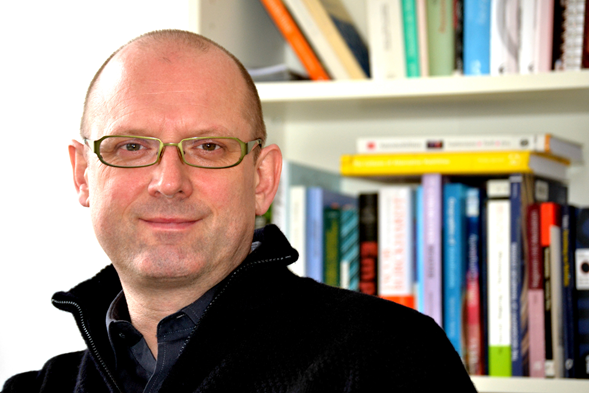
Sven Kesselring is professor in ‘Automotive Management: Sustainable Mobilities’ at Nuertingen Geislingen University, Germany, and visiting professor at Aalborg University, Denmark. He co-edits the new journal Applied Mobilities. Sven studied sociology, political science and psychology and holds a PhD in sociology and a doctoral degree. He was research fellow at Hans Böckler Foundation, Erich Becker Foundation (Fraport) and the German Research Association. He is the director of the Cosmobilities Network and vice-president of the International Association for the History of Transport, Traffic and Mobility (T2M). From 1999 to 2006 he was member of the reflexive modernisation research centre in Munich. His research focuses on mobilities theory, social change and reflexive modernization, corporate mobilities regimes, urban sociology, aeromobilities, and future research.
Implications of Automated and Connected Mobility Systems for Smart Cities and Urban Planning
Professor Malene Freudendal-Pedersen
Aaalborg University, Denmark
Abstract
As a significant part of the discussions on smart cities we find discourses on automated mobility in urban spaces shaping the urban space and its infrastructures in a near or distant future. In many ways, it seems that the current storylines, to a high degree, reinforce and (re)produce the “system of automobility”. The question of how to structure the existing and future architectures, technologies, and infrastructures is in fact a form of “designing cities”, of shaping their materialities, and, at the same time, their interactive spaces and social environments. The “smart cities” discourse is frequently connected to a sort of “engineering logic” aiming for optimizing the social layout, the urban infrastructure and networks, and (at least) parts of human interactions. Often, “smart cities” are considered as coded spaces facilitating self-learning socio-technical environments grounded in IT and artificial intelligence, where software is applied to facilitate the efficient use of resources, space, infrastructure and energy, and to provide user-friendliness and sustainability. Alternatively, they are seen as assemblages of technologies aimed at increasing competitiveness, administrative efficiency, and social inclusion. These ideas of the smart city have been strongly criticized for being an enforcement of the “technocentric planning paradigm” where the planning of movements in cities focuses mainly on traffic, with “seamless mobility” as an almost unchallenged principle for an efficient organization of societies. Against the background of the growing debate on smart cities, it becomes even more important to integrate the human scale and the social and cultural practice systematically in scientific analysis, planning, business models, and collaborative work on the future of urban living.
Modern lives still rely upon the need for exchanging everyday experiences and sharing responsibilities. The different forms of presence, commitment, and intentionality are simultaneously localized, and continued at a distance, through physical and virtual mobilities. Looking through different types of narrations on how the city, its everyday life and its mobilities would look like in the future, they have a lot in common; almost all of them describe a future where emotions are erased and irrelevant. Here I am specifically referring to movies, books and also different futurologists extrapolating upon future lives. A good example is a clip from 1960 on YouTube where Arthur C. Clarke (the author of the book “2001: A Space Odyssey”) talks about the future city. He is basically able to describe quite accurately the mobile world of today with unforeseen (or maybe not) technological opportunities. Where he falters, however, is on the part of modern lives where face to face interactions, messiness, flexibility and freedom in engaging with people and the urban is still highly significant for meaning making and happiness. When we look at discourses on what makes a liveable city it is very much based on the idea of creating different kinds of communities and materialities that fosters the opportunity to interact and dwell in the urban spaces (green and blue spaces especially). This poses a contradiction to the technocratic idea of a clean and orderly smart city and this is the dilemma we need to resolve when we want to discuss what cooperative, connected and automated mobility actually means. Inspired by David Harvey we can ask ourselves the question ‘What kind of city for what kind of people’.

Malene Freudendal-Pedersen is Professor in Urban Planning and Sustainable Mobilities at Aalborg University, Denmark. She has an interdisciplinary background linking sociology, geography, urban planning and the sociology of technology which she for many years have used to investigate everyday life praxis’s of mobilities and its significance for (future) cities. She is the co-manager of the international Cosmobilities Network, co-editor of the journal ‘Applied Mobilities’ and the Cosmobilities book series at Routledge. She is the (co)author of several books and papers including The three volume Networked Urban Mobilities
Mobility of Tomorrow and Autonomous Vehicles
Anders Eugensson
Director of Governmental Affairs, Volvo
Abstract
The modern society is facing a number of challenges linked to the transportation sector; urbanisation and growing megacities, major health problems as a result of low air quality, increasing number of traffic casualties globally, traffic congestions and extensive time consuming commuting resulting in reduction in life quality and frustration and the desire of modern citizens to be constantly connected and to use the time in the vehicle more efficiently. At the same time, we know that transportation is the backbone of modern society. Without efficient transportation, our lives would be very different and not what we are accustomed to. The strategy of the motor vehicle industry to face these challenges follows three paths; automation, electrification and connectivity.
The development of autonomous vehicles offers many opportunities. Among those are: reduction in traffic casualties, reduction in vehicle emissions from more efficient transportation planning and improved traffic flow, individual mobility for more people including people with physical challenges, more efficient urban planning and reductions of time waste from more efficient transportation and reduction in congestion and possibilities to use the time efficiently while being mobile. Autonomous and connected vehicles will also, potentially, lead to a merge of individual and public transportation. Future personal mobility will include a mix of various types of services which seamlessly interact and offer uncomplicated, time efficient, sustainable and comfortable transportation.Transportation of goods will potentially be transported without human interaction and with significant reductions in cost while being more efficient.
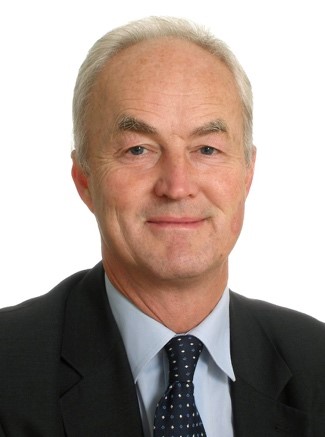
Anders Eugensson received his Master Degree in Civil Engineering from Chalmers University of Technology, Sweden and Imperial College, London, England in 1978. He joined Volvo in 1984 and between 1984 and 1987 was part of the team that worked on the structural crashworthiness design of the Volvo 850. In 1998 he joined the Volvo Safety Centre working on strategic issues as well as interacting with governments and policymakers. Since the beginning of 2003 he is the Director of Governmental Affairs within Volvo Car Corporation. In this role he is part of the cross-functional team responsible for defining the long-term Volvo Cars safety strategies. In 2013 he received the National Highway Traffic Safety Administration’s US Government Special Award of Appreciation.
The Daimler Vision for Autonomous Mobility Services
Adela Spulber
City Relations/Business Development Manager (Autonomous Services), Daimler, Mobility Services, Germany
Abstract
The arrival of autonomous mobility services will be the opportunity to address crucial pain points in urban transportation. In this period of great change, Daimler is perfectly positioned to develop autonomous services leveraging its vehicle portfolio, from cars and vans to buses. Daimler seeks to deploy autonomous services that will seamlessly integrate in existing ecosystems to improve mobility and safety, reduce GHG emissions and urban parking demand, with the first real-world pilot service starting this year in San Jose, California.
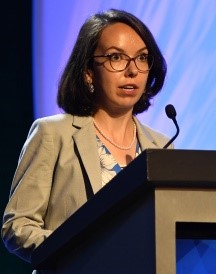
Adela Spulber is the City Relations/Business Development Manager at Daimler Mobility Services. In this role, she focuses on fostering relationships with cities and other public agencies to prepare the deployment of autonomous mobility services.
Adela previously conducted research on shared mobility, autonomous and connected vehicles, and smart cities as a transportation analyst at the Center for Automotive Research (Ann Arbor, USA). Adela was also a project coordinator at the Cross-border Operational Mission (Paris, France), where her focus areas included cross-border economic development and public transit. Adela received a master’s degree in Regional and Urban Planning and a bachelor’s degree in Political Sciences and European Affairs from Sciences Po Paris in France. She is fluent in several languages, including English, French, Italian, and Spanish.
Automated Driving, the Future of Urban Mobility and CO2 emissions.
Armin Gräter, BMW Group
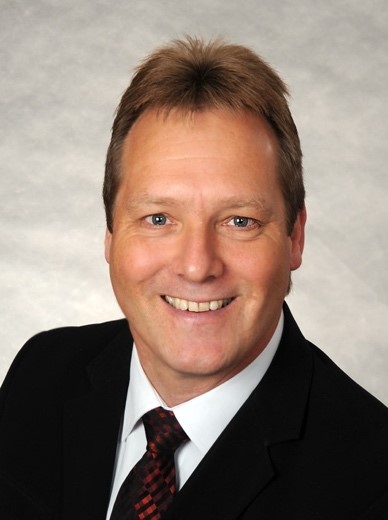
Armin Gräter has been in BMW since 1985 as Diplom-Wirtschaftsingenieur (University Rosenheim) in different roles of development and marketing. Since 2005 he has been project leader of Safety of the BMW Hydrogen7, MINI e and other electric mobility projects. From 2009 he was leader in Functional Safety of the BMW Group. Establishing a safety oriented development process. Since 2013 he has been Leader in Strategy Driver Assistance and Automated Driving and co-chair of the ERTRAC (European Road Transport Research Advisory Council, advising the EU Commission) Working Group Connected Automated Driving. He is the member of the EU-CSA-Project FUTURE RADAR and Work package Leader in EU-CSA-Project CARTRE including organizing workshops and supporting the organization of the first EU CAD Conference.
Currently he is Technical Product Manager Regulation Automated Driving
VDA and ERTRAC roles ongoing. He is in charge of coordination of all BMW activities to support the worldwide deployment of Level 3 (Highway) and preparing large scale testing with users for Level 4 (Urban), as well as broad coverage of Homologation, Traffic rules, Enforcement as well as Security, Software Updates und technical Inspection.
Implications of Automated Mobility systems for MaaS
Professor Malte Ackermann,
Professor for Mobility-as-a-Service (automotive management), Nürtingen-Geislingen University, Germany
 Malte Ackermann studied management at Siegen, Newcastle and Marburg. He was Research, Associate and Ph.D. in Innovation & Technology Management at Philipps-University Marburg and Research Fellow at Asian Institute of Technology and San-Diego State University. He worked as a start-up Consultant, co-founder Media Agency and Product Owner at a Software Start-up. He was employed as Project Manager and Global Strategy at car2go/moovel - Market Development at Daimler Financial Services AG. Since September 2018 he is Professor at Nürtingen-Geislingen University, Germany
Malte Ackermann studied management at Siegen, Newcastle and Marburg. He was Research, Associate and Ph.D. in Innovation & Technology Management at Philipps-University Marburg and Research Fellow at Asian Institute of Technology and San-Diego State University. He worked as a start-up Consultant, co-founder Media Agency and Product Owner at a Software Start-up. He was employed as Project Manager and Global Strategy at car2go/moovel - Market Development at Daimler Financial Services AG. Since September 2018 he is Professor at Nürtingen-Geislingen University, Germany
Participants
Prof. Malte Ackermann, Nürtingen-Geislingen University (HfWU)
Ralf Blomqvist, LearningMiles
Prof. Anthony Elliott, UniSA
Anders Eugensson, Ex Volvo, SE
Prof. Malene Freudendal-Pedersen, University of Aalborg
Armin Gräter, BMW Group
Tomas Haeger Main Dialog, Sweden
Dr. Eric Hsu, UniSA
Prof. Sven Kesselring, Nürtingen-Geislingen University (HfWU)
Dr. Jessica Le Bris, Green City Experience GmbH, Munich
Dr. Benedikt Maier, Nürtingen-Geislingen University (HfWU)
Michael Mögele, TU Munich; mobil.LAB PhD program
Veronika Moses, University of Tartu
Bo-Magnus Salenius, LearningMiles
Susanne Schatzinger, Fraunhofer Institute for Industrial Engineering IAO
Caroline Schönewolf, BMW, Germany
Eriketti Servou, Nürtingen-Geislingen University (HfWU); mobil.LAB PhD program
Adela Spulber, Daimler Mobility Services, Germany
Dr. Chelsea Tschoerner-Budde, Ministry of Transport of Land Hessen
Dr. David Tyfield, Lancaster University
Dr. Dennis Zuev, Nürtingen-Geislingen University (HfWU)
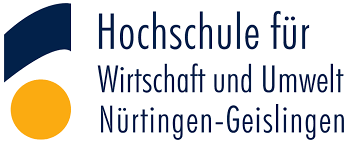

![]()
“No-One Driving: Dwelling in the Age of Automated Mobilities”
Armin Gräter,Technical Product Manager Regulation Automated Driving, BMW Group.
Automated Driving, the Future of Urban Mobility and CO2 emissions.




